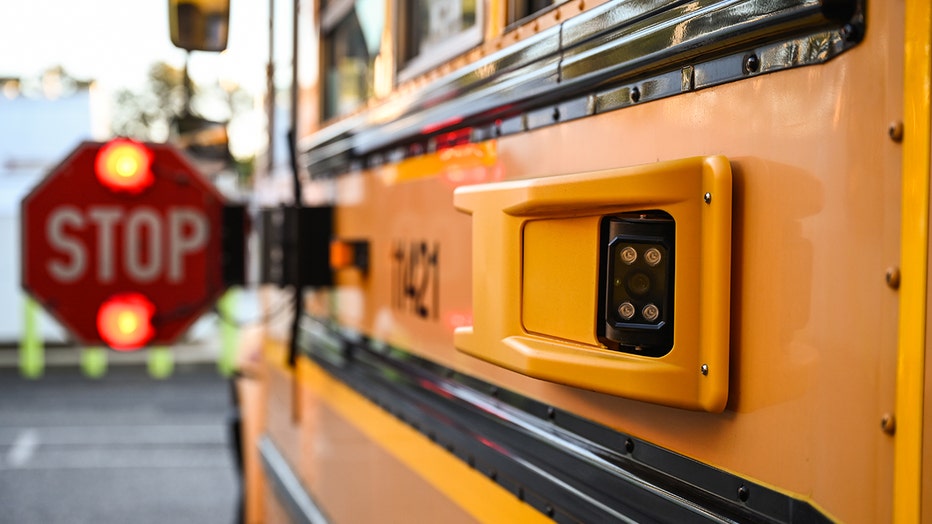NYC public school transportation options: What parents need to know

Report: Girls more unhappy in school than boys
According to a new report, New York City girls are outperforming boys academically in nearly every aspect, but that they are not happy with their overall experience. FOX 5 NY's Antwan Lewis crunches the numbers and has more.
NEW YORK CITY - NYC public schools are set to welcome its students next Thursday.
The DOE has several transportation options, such as MetroCards and buses, for students to get to school.
"Transportation services that are available to students vary by each child's eligibility and need for those services," the DOE states. "Speak with your school if you have questions about the available options."

Close-up of a camera attached to a school bus in the company yard in Medford, New York on October 20, 2021. (Credit: Steve Pfost/Newsday RM via Getty Images)
Methods of transportation include:
- MetroCards are distributed by your school for use on MTA subways & non-express buses.
- Stop-to-School Busing picks up and drops off eligible students at designated bus stops.
- Curb-to-School Busing picks up students from the nearest, safest curb to their home.
Eligibility
- MetroCards and Stop-to-School Busing: Depends on grade and distance requirements; busing is available based on additional criteria, including length of route and district lines. Additionally, it is provided to students who are recommended for stop-to-school busing on their 504 Plan.
- Curb-to-School Busing: Provided to students who are recommended for curb-to-school busing on their IEP or 504 Plan.
- Students in Temporary Housing and Foster Care in Grades K-6: Are eligible to request busing and will be placed either on a stop-to-school or curb-to-school route.
Exceptions to Eligibility
The types of exceptions are:
- Temporary Medical
- Temporary Housing
- Foster Care
- Joint Custody
- Victim of a Crime
- Order of Protection
- Hazard
Families of students who already receive curb-to-school busing can request one-way transportation to a different afterschool location instead of being dropped off at their home.
Transportation Accommodations for students with an IEP
Most students with IEPs (Individual Education Plan) travel to and from school in the same way as students without IEPs. An IEP team may recommend busing for children whose documented needs affect their ability to travel to or from school. These needs can be emotional, behavioral, cognitive or communication, and physical or medical.
Some children may also require additional transportation accommodations to travel safely to and from school. These can include: 1:1 transportation paraprofessionals, medical/nursing services, travel time limitations, climate control, safety vests, and car seats.
Are students in temporary housing and foster care eligible for busing?
Yes, students in temporary housing and students in foster care in grades K-6 are eligible for busing to their school. An Exceptions Form to request busing must be filled out for students in:
- Foster care
- Preschool (temporary housing and foster care)
- HRA-DV shelters
- Housing Preservation & Development (HPD) shelters
- Temporary doubled-up situations
- Other temporary housing, i.e. car, park, students transitioning from temporary to permanent housing
To access the full 2024-2025 school year calendar, click here.

